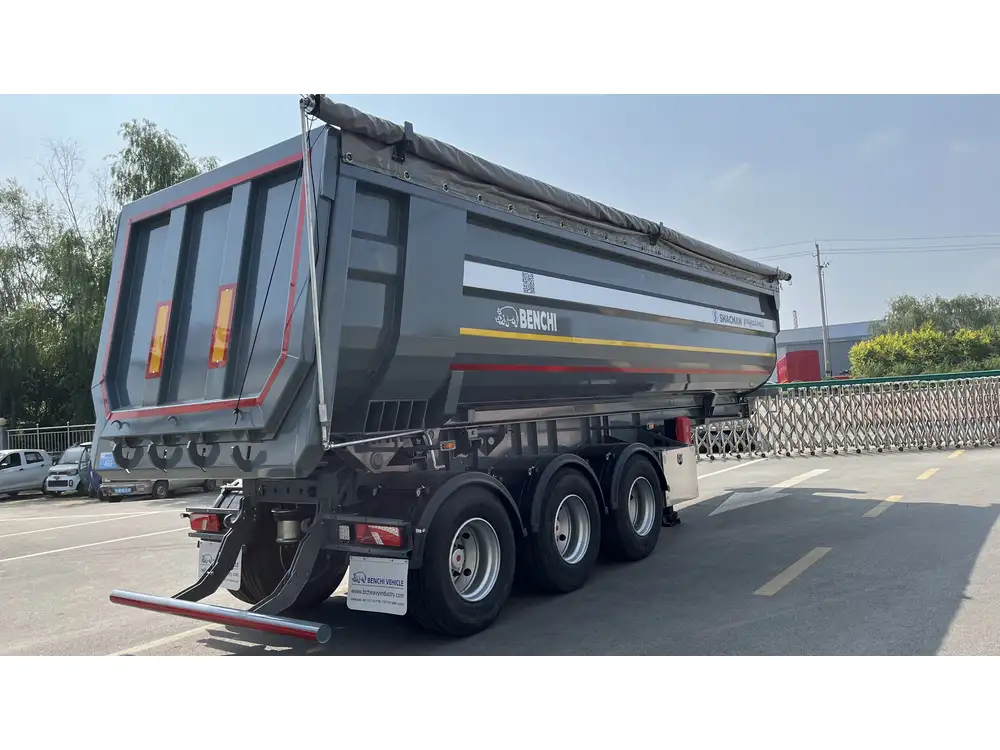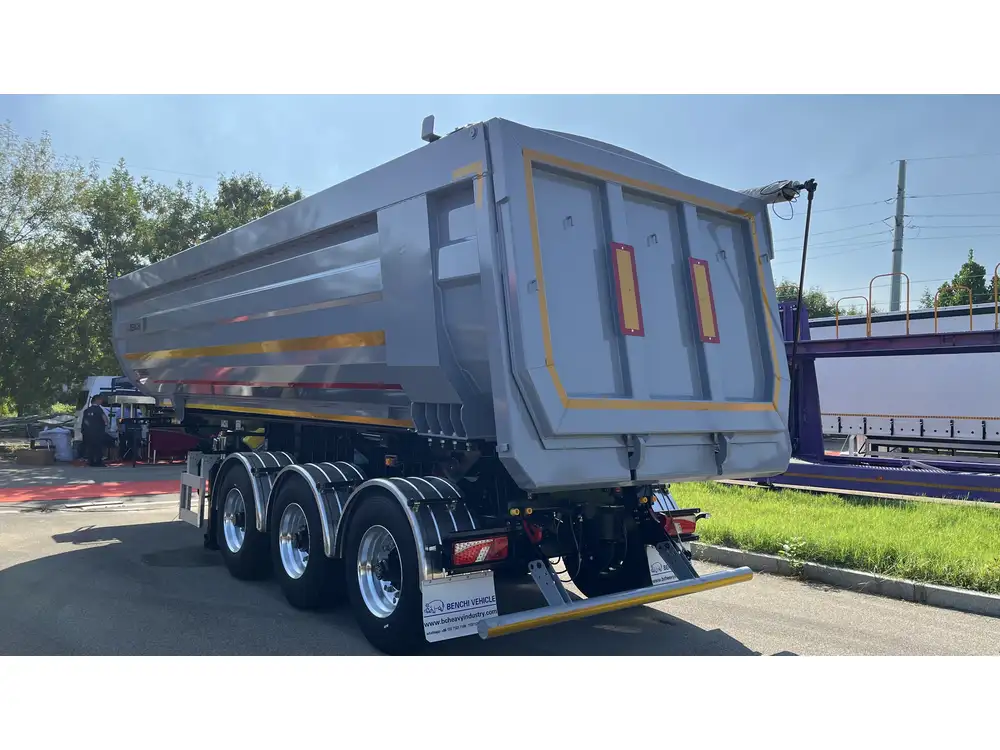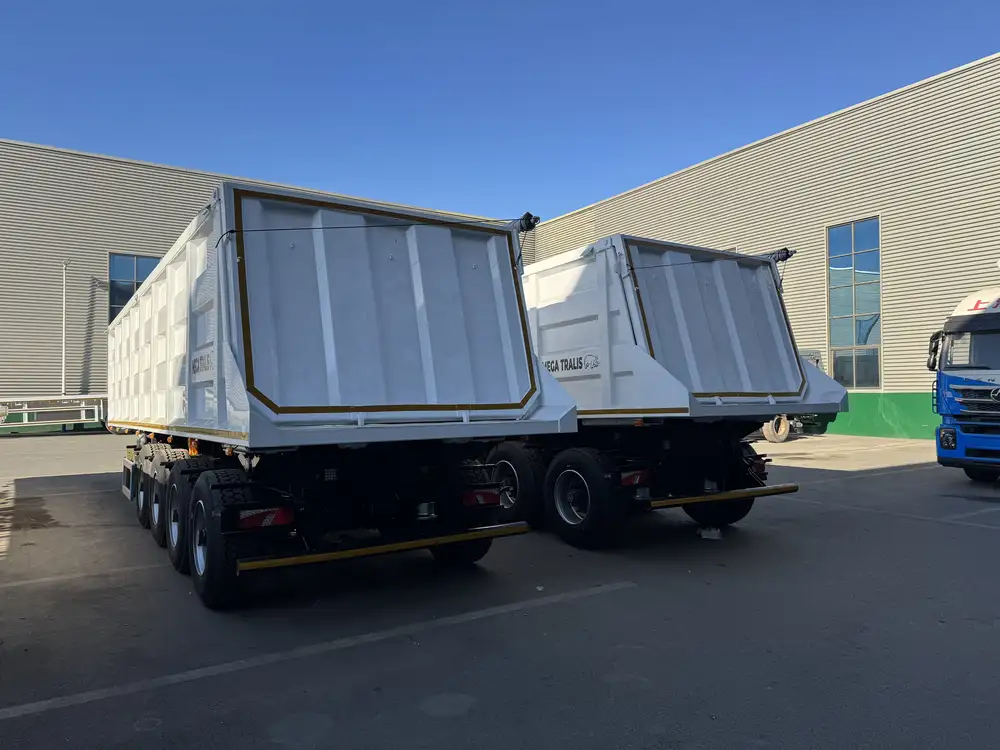When it comes to efficiently and safely unloading lumber from a semi-trailer, understanding the nuances of your trailer’s door mechanism is critical. In this guide, we will provide detailed step-by-step instructions, additional tips, and essential safety measures to help you successfully open the door of your trailer before dumping lumber. With the right processes in place, you can ensure that your operations run smoothly while minimizing risks.
Understanding Your Trailer’s Door Mechanism
Before we delve into the specific steps for opening a trailer door, it is imperative to understand the mechanisms that control trailer doors. Most semi-trailers feature either swing doors or roll-up doors. Each has its unique characteristics.
Types of Trailer Doors
| Type of Trailer Door | Description | Advantages | Disadvantages |
|---|---|---|---|
| Swing Doors | Hinge open like traditional doors, usually found on flatbed and dry van trailers. | Easy to operate, full access to the opening. | Takes more space when opened; risks hitting nearby objects. |
| Roll-Up Doors | Mechanically retract upwards, suitable for refrigerated and other storage trailers. | Space-saving; minimizes wind resistance. | Can be harder to operate and repair if malfunctioning. |

Mechanism Overview
- Swing Doors: Operated via a simple latch and hinge mechanism. They often include adjustable locks and handles.
- Roll-Up Doors: Operated with spring and cable systems. They require careful engagement of the locking mechanism to avoid jamming.
Preparing to Open the Trailer Door
Before initiating the unloading process, certain preliminary actions should be taken:
Safety Precautions
- Wear Appropriate PPE: Personal protective equipment (PPE) such as gloves, helmets, and steel-toed boots is essential.
- Inspect the Trailer: Conduct a thorough visual inspection to ensure that the area around the trailer is clear of obstacles, and the door mechanism is in good condition.
- Confirm Load Stability: Ensure that the lumber is properly secured and balanced within the trailer. This helps prevent shifting during door operation.

Gather Necessary Tools
- Lifting Equipment: Depending on the door type, you may need handle grips or a lever.
- Flashlight: Useful for dark environments or inspecting mechanical components.
- Lubrication Spray: For roll-up doors, maintaining a smooth operation is crucial.
Step-by-Step Instructions for Opening Swing Doors
Step 1: Unlock the Trailer Door
Locate the locking mechanism on the trailer’s door. This is typically positioned near the latch.
- Turn the Lock: Use the trailer key to unlock the door.
- Release the Latch: Push or pull the latch away from the frame to disengage.

Step 2: Ensure Safety Measures
Confirm that the surrounding area is free from personnel and equipment before proceeding.
Step 3: Open the Door
- Grip the Door Handle: Ensure a firm grip on the handle.
- Open Slowly: Pull the door towards you at a controlled pace to prevent a sudden swing.
- Secure the Door: If necessary, use door holders or straps to keep it open.
Step-by-Step Instructions for Opening Roll-Up Doors

Step 1: Examine the Door Mechanism
Before operation, perform an assessment to ensure the roll-up door functions correctly.
Step 2: Unlock the Door
Identify the locking mechanism. There are typically centralized locks at the top.
- Unlock the Mechanism: Rotate or lift the locking device to unlock.
- Pull Down on the Release: This engages the door’s release.
Step 3: Opening the Roll-Up Door
- Continue Pulling Downward: Gradually, pull down on the release while guiding the door upward.
- Fully Retract the Door: Once up, ensure it is secured in the open position.

Tips for Efficiently Unloading Lumber
Understanding Weight Distribution
When unloading lumber, awareness of weight distribution can significantly affect the unloading process. Consider these methodologies:
- Unloading from the Front: For a more balanced approach, start unloading from the front of the trailer.
- Toward the Center: This technique helps distribute the shifting weight evenly as more lumber is removed.
Proper Techniques for Lumber Handling
- Lifting Techniques: Always lift with your legs and keep the load close to your body.
- Use of Equipment: Utilize forklifts or pallet jacks for heavy or bulk loads to minimize personal strain and potential injuries.

Awareness of Surroundings
Maintain situational awareness regarding your environment, including load area, trailer stability, and nearby personnel.
Troubleshooting Common Problems When Opening Trailer Doors
Even with the best practices, you may encounter issues. The following table details common problems and solutions:
| Problem | Possible Cause | Suggested Solution |
|---|---|---|
| Door Won’t Unlock | Misaligned latch or debris obstructing the lock. | Clear debris and realign the latch. |
| Door Sticks | Rust or lack of lubrication. | Apply lubrication and test the door. |
| Door Falls Back Upon Opening | Damaged or weak springs (for roll-up doors). | Inspect and replace worn springs. |
Safety and Maintenance Measures
Regular maintenance of both the trailer and its door mechanisms is paramount. Schedule periodic inspections and timely repairs.

Maintenance Tips
- Lubricate Moving Parts: Regularly lubricate hinges, locks, and rollers on roll-up doors.
- Inspect for Signs of Wear: Frequent inspection can help identify wear sooner rather than later, potentially preventing bigger issues.
- Test Mechanisms: Before use, manually test the locking and opening mechanisms.
Conclusion
Successfully opening the door to a trailer before dumping lumber involves understanding the different types of trailer doors, following systematic steps, and implementing safety measures. With the knowledge provided in this guide, we hope you feel equipped to handle various trailers and navigate unloading with ease.
Following proper procedures not only enhances operational efficiency but also significantly reduces the risk of accidents on the job site. Stay informed, stay safe, and ensure a seamless unloading experience every time. Explore our range of semi-trailer products and accessories, designed to enhance your operational productivity and safety standards.



